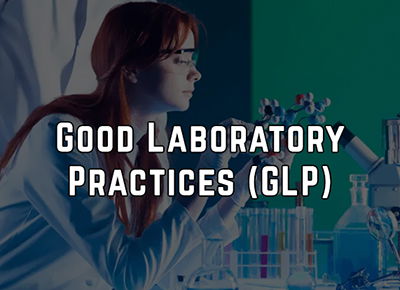GLP Data Integrity - Ensuring Accurate Reliable Results
🎤 Charles H. Paul | 📅 November 19, 2024 | 🕒 11 AM Eastern Time US
Why You Should Attend:
This webinar, GLP Data Integrity: Ensuring Accurate, Reliable Results, will provide a thorough overview of data integrity principles essential for Good Laboratory Practice (GLP). Participants will explore the fundamentals of GLP and understand how data integrity directly impacts regulatory compliance, scientific credibility, and overall data quality in laboratory environments. The session will review the ALCOA+ principles (Attributable, Legible, Contemporaneous, Original, Accurate, Complete, Consistent, Enduring, and Available), which are fundamental to maintaining trustworthy data, as well as various international guidelines from bodies such as the FDA, EMA, and WHO that outline specific data integrity requirements.
The webinar will also cover common data integrity challenges, such as data entry errors, incomplete records, and insufficient staff training, illustrating these issues with real-world examples where data integrity lapses led to regulatory consequences. Attendees will gain practical strategies to overcome these challenges, including tips for implementing ALCOA+ principles, establishing robust Standard Operating Procedures (SOPs), leveraging Electronic Data Management Systems (EDMS), and conducting regular audits. Through these insights, participants will be equipped with actionable practices to strengthen data integrity, thereby supporting both regulatory compliance and the generation of reliable, high-quality scientific data.
Attending this webinar on GLP Data Integrity: Ensuring Accurate, Reliable Results is essential for anyone working in laboratory environments that need to comply with strict regulatory standards. Participants will gain a practical understanding of the ALCOA+ principles, which are crucial for maintaining data that is accurate, complete, and reliable. The session will provide insights into current regulatory requirements and common data integrity challenges, equipping attendees with actionable strategies to address issues that could compromise data quality or lead to compliance risks. By implementing the best practices discussed, participants will enhance their ability to maintain robust data integrity, supporting both scientific credibility and regulatory compliance in their organizations.
Learning Objectives:
- Understand GLP data integrity principles.
- Recognize regulatory requirements and guidelines.
- Identify common challenges and solutions.
- Implement best practices for data integrity.
Areas Covered in the Session:
Overview of GLP and Data Integrity
- Good Laboratory Practice (GLP) Basics
- Definition and purpose of GLP.
- Importance of GLP in regulatory compliance and data quality.
- Data Integrity in GLP Context
- Defining data integrity (accuracy, completeness, consistency, and reliability).
- Impact of data integrity on scientific validity and compliance.
Regulatory Requirements and Guidelines
- Key Regulatory Bodies and Their Roles
- FDA, EMA, WHO, and other relevant bodies.
- Key Data Integrity Guidelines
- ALCOA+ principles: Attributable, Legible, Contemporaneous, Original, Accurate + Complete, Consistent, Enduring, and Available.
- Review of FDA’s Data Integrity and Compliance guidelines.
- Discussion of other international guidelines and best practices.
Common Data Integrity Challenges
- Examples of Data Integrity Issues
- Data entry errors, incomplete records, data falsification.
- Improper data storage and handling.
- Inadequate staff training and documentation practices.
- Real-World Case Studies
- Highlight a few significant case studies where data integrity issues led to compliance penalties or product recalls.
Strategies and Best Practices for Ensuring Data Integrity
- Implementing ALCOA+ Principles in Daily Operations
- Tips for ensuring data attributes meet ALCOA+ standards.
- Developing Robust Standard Operating Procedures (SOPs)
- Importance of well-documented SOPs for data handling, entry, and verification.
- Training and Education
- Importance of continuous training for laboratory staff.
- Tips for implementing effective training programs.
- Electronic Data Management Systems (EDMS)
- How digital systems can enhance data integrity.
- Key features to look for in a compliant EDMS.
- Auditing and Self-Inspections
- Routine checks and self-audits to identify gaps in data integrity.
Who Should Attend:
- Laboratory Technicians
- Quality Assurance (QA) Specialists
- Regulatory Affairs Professionals
- Research Scientists
- Data Managers/IT Specialists
- Clinical Trial Coordinators


